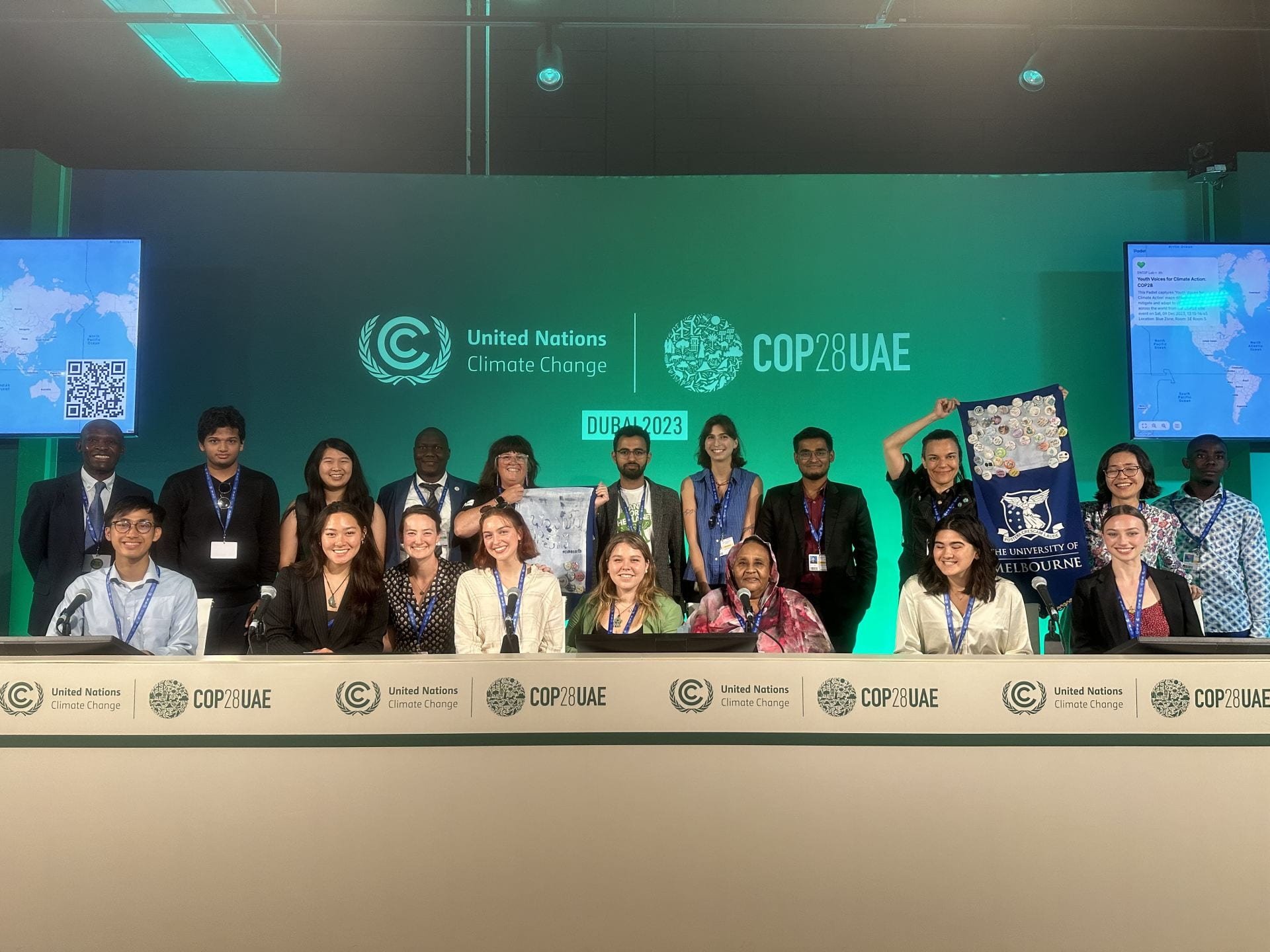Hacking the Anthropocene: cross-network research and pedagogy for climate action
Researchers Dr Kathryn Coleman and Dr Sarah Healy collaborated with the Science Galleries Melbourne, Bengaluru, and Atlanta to co-design a climate curriculum with and for young people
Kathryn Coleman and Sarah Healy (2023)
The Anthropocene, while a controversial concept, marks a pivotal juncture in history – defined by the profound impact of human activities on our environment and the intricate interplay of the social, political, economic, and cultural dimensions of climate change. In response to the need for interdisciplinary and intersectional approaches for young people in navigating this era, Dr Kathryn Coleman and Dr Sarah Healy from the SWISP Lab at the University of Melbourne, in collaboration with the Science Gallery International Network, have spearheaded a pioneering initiative: Hacking the Anthropocene.
Hacking the Anthropocene is a research-based climate curriculum co-designed with young adults from Atlanta, Bengaluru, and Melbourne. It focuses on practical, local actions tied to global discussions. By harnessing ‘hacking’ as a speculative method, they imagine and co-create pluricultural climate futures. Coleman and Healy first co-designed and tested ‘hacking’ as method with the Science Gallery Melbourne’s youth steering committee Sci-Curious in 2020.
“What is your climate story? What does it say about country, climate collapse and/or digital disruption?”
Kathryn Coleman and Sarah Healy and Science Gallery Bengaluru mediators during one of the hackathons (2023)
At the heart of this initiative lies HAK.io – a mobile education kit designed to encourage exploration, examination, and inquiry among young people, using innovative educational methods. Each session starts with climate narratives that often embody the experiences of entire communities and families. These narratives shape our perceptions of how we coexist with our environment and offer insights into alternative modes of being.
The components of the HAK.io (Hacking the Anthropocene Kit)
Young participants engage in collaborative problem-solving, applying theoretical frameworks and methodologies to craft projections of present realities and future scenarios. These activities encompass digital play with AI collaborators, climate comedy, emotional mapping through computational means, and the construction (and deconstruction) of virtual environments.
Coleman and Healy also extended their collaboration with Science Gallery Atlanta at Emory University, working with Emory’s Professor Eri Saikawa to present the outcomes of Hak.io at the United Nations Climate Change Conference (COP28).
The artifacts stemming from HAK.io continue to be re-hacked and integrated into a virtual space within Mozilla, conceived by digital artist Yvette Walker, to facilitate interdisciplinary knowledge exchange within and beyond the Science Gallery Network. The data gathered in this metaverse is then used to advance the pedagogical education of new teachers in working with young people.
Through HAK.io, young people are empowered to engage in activism, action, and advocacy through playful exploration. This innovative approach exemplified by Hacking the Anthropocene underscores the Science Gallery Network's capacity to pioneer research and pedagogy methodologies, shaping a new ecosystem where youth can actively transform and co-create solutions to foster intergenerational climate futures.
Read more
University of Melbourne’s SWISP (Speculative Wanderings in Space and Place)
Compiled by: Ana Prendes, Science Gallery International, 2024




